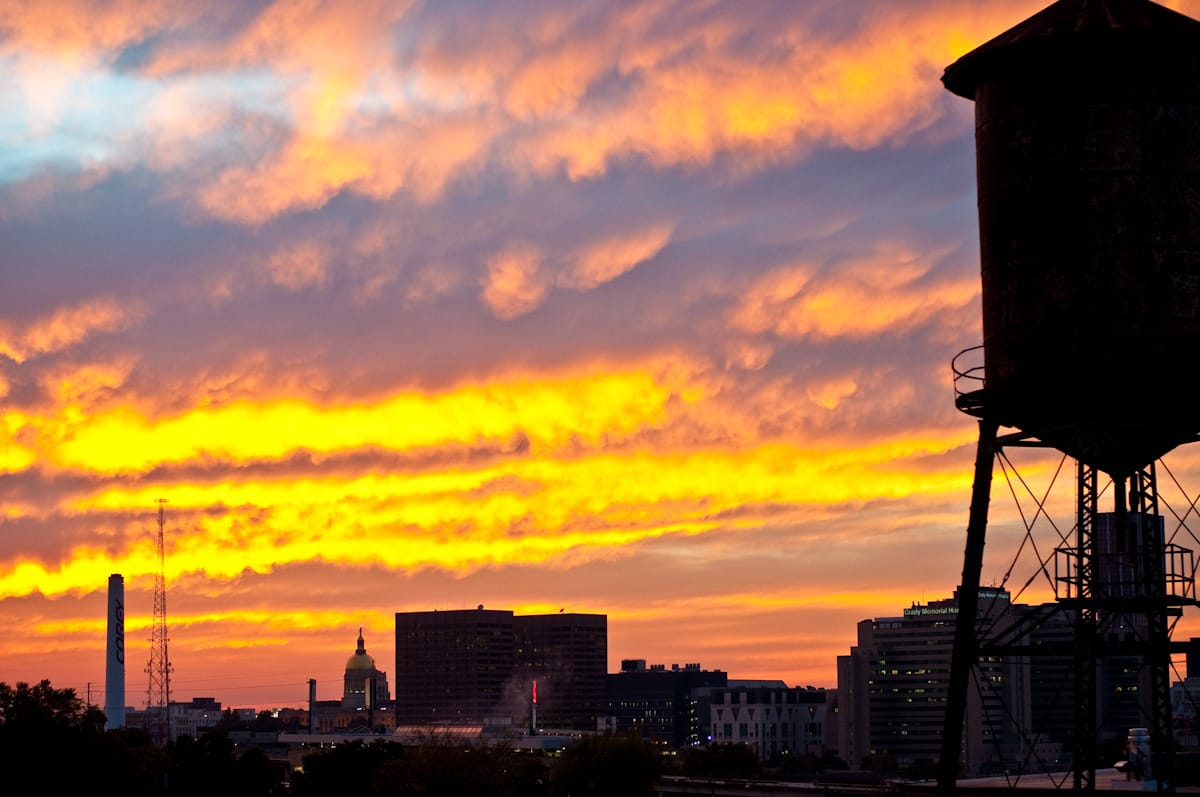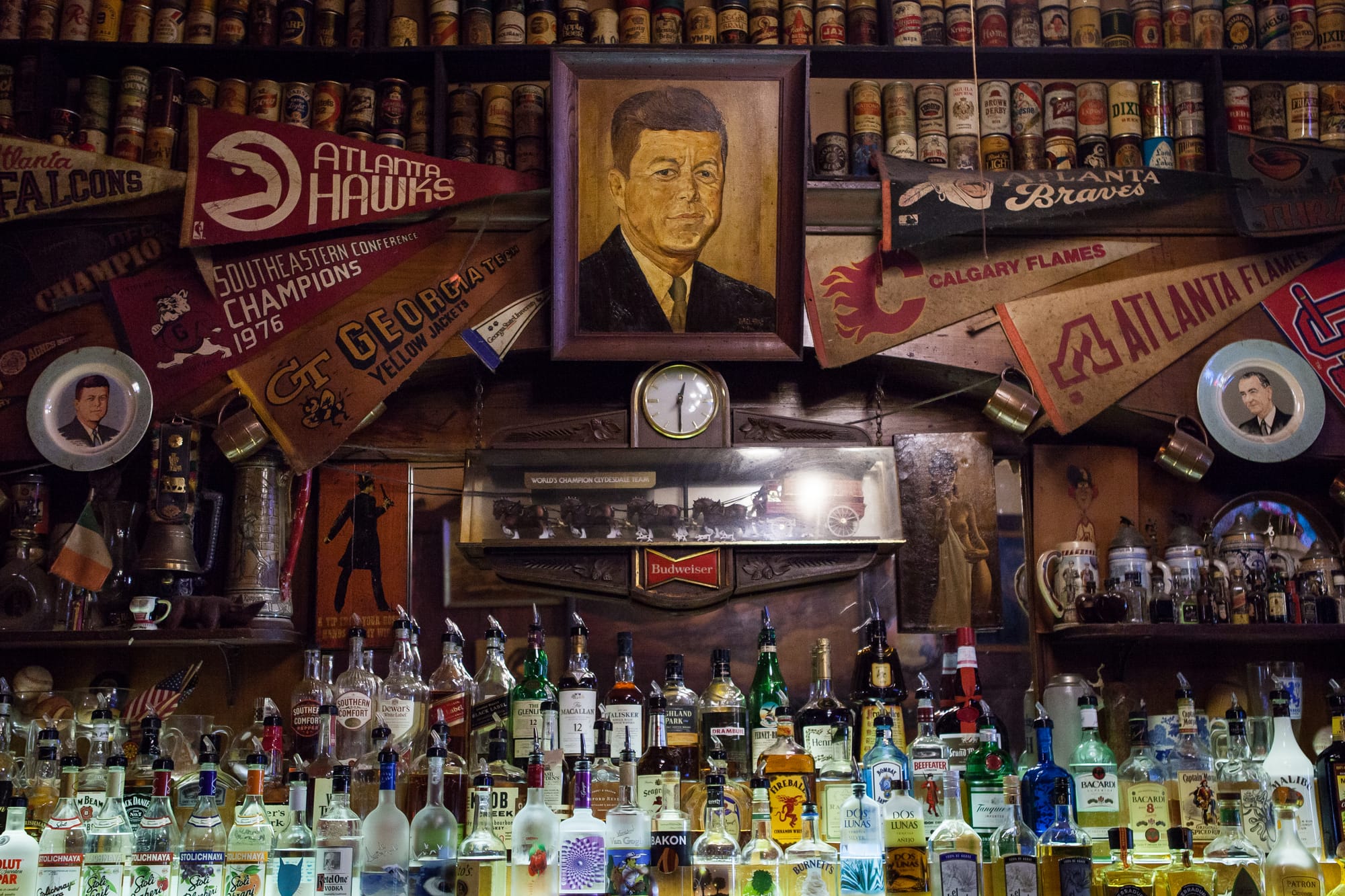
The City of Atlanta has the highest income inequality in the country, an affordable housing crisis, rail that only goes in four directions, a single level-one trauma center, and neighborhood-segregating highways that cause traffic and accidents.
That’s not all. Black and minority entrepreneurs don’t have equitable access to funding, sidewalks aren’t ADA-compliant, water mains burst and destabilize the city, people are dying in jail, our city is constantly flooding, and ATL is burning up, both literally and metaphorically.
To describe our so-called world-class city with these facts paints a bleak picture of Atlanta. But what if I told you that all of these woes could be prevented? In fact, what if I told you a specific group of people, with a very specific goal and mindset, engineered nearly all of Atlanta’s pain points? It’s called The Atlanta Way, and it’s time for us to get it out of our way.
Maybe you’ve heard of The Atlanta Way. It’s a biracial regime made up of the city’s elite, an informal governing coalition. It’s also a nepotistic, incestuous web of private interests prioritized by public officials. They serve on the same boards, attend the same leadership programs, and work at the same places.
Membership in this regime includes Mayor Dickens (and several mayors before him), the Atlanta City Council, the Chambers of Commerce, greedy real estate developers, Atlanta Committee for Progress, Arthur Blank, the AJC, Central Atlanta Progress, Atlanta Police Foundation, giant hometown corporations, various business owners, philanthropists and nonprofits, and every other private-public partnership they can devise.
Put another way: it’s a bunch of capitalist dorks who care about making money and nothing else. And they don’t care who they take it from. They’re power brokers who make the choices for us, they’re mostly unelected, and they run this city.
For a certain kind of person, The Atlanta Way is a signal that we do things differently here. But many are finally starting to realize that this “difference” is really just corruption in another set of clothes, lying to us and smiling while it shakes our hand. The Atlanta Way is a way to trick everyday people into thinking their hometown is better than the rest.
Unlike the federal government, local and state governments must first collect the tax revenue before funding or financing public projects and services. This requires local governments like the City of Atlanta to partner with private entities for additional funding. This funding, however, comes at a steep price. The City must meet the conditions set by the private entities, which leaves the public worse off than without them. The private sector provides money and favorable interest rates and the public officials provide them with profitable public projects in return. This is The Atlanta Way.
Its members collude and slice up pieces of the Atlanta pie. They decide who can buy which land at which rates, who gets the tax breaks, who gets the contracts, where development happens and when. They set prices, conditions, land-use, and more. Worst of all? They face no competition. The Atlanta Way is a biracial monopoly.
With complete, unregulated power, they redirect public money and resources toward private profit and deny Atlantans the right to democracy, safe housing, expansive public transit, and sustainable environments. They have financed and facilitated the poverty, racial inequality, and homelessness in our city.

But what if The Atlanta Way didn’t go around promising public money and benefits to fund private stadiums or affordable housing? What if The Atlanta Way didn’t promise banks and businesses increased profits in the form of tax breaks, future tax revenue, and tax subsidies? What if The Atlanta Way simply didn’t exist?
Private banks facilitated and financed the slave trade, put a quick end to Reconstruction, and depressed our economy. They’ve also facilitated and financed every deal, partnership, contract, tax break, tax subsidy, public project, and grant that The Atlanta Way has worked on for decades.
Economist Hyman Minsky once said that capitalism is just a financial system, and given that The Atlanta Way is just a regime of capitalists, that means that The Atlanta Way is also just a financial system. And the only way to disrupt a financial system is to break it up.
The power to control the flow, direction, and investment of money should not be held by the private corporate interests in Atlanta, it should be held democratically by the people of Atlanta. We have the right to direct our public money and resources.
Enter The Public Bank of Atlanta (PBoA).
Public banks, which are publicly owned and administered by experts and not nepotistic patronage hires, are legally obligated to operate in the public interest—our interest. For the purposes of this essay, I will refer to banks as those with depository bank charters, meaning they are allowed to make loans, hold deposits, and have access to the Federal Reserve’s discount window.
There are three types of banks: credit unions, private banks, and public banks. The only differences between them are ownership and priorities.
A credit union is a nonprofit and owned by its membership. The credit union shares the profits with their members through reduced fees, higher savings rates, and lower loan rates. Credit unions, however, tend to be smaller, regional, and limited by their membership.
A private bank is for-profit and owned by shareholders. Its one and only priority is to increase profits as quickly as possible. Because a private bank’s motivation is profit, they’re going to charge higher interest rates, rely more or solely on credit ratings, and will be incentivized to engage in discriminatory or fraudulent practices. Private banks have been caught denying mortgages, lines of credit, and charging disproportionately high interest rates to Black applicants and other minority communities. Private financial and corporate interests are to blame for ATL’s racial wealth gap because they made record profits through racist practices.
A public bank, on the other hand, is publicly-owned and serves a public purpose to invest in the public good. It operates without profit motive and is governed with public oversight. This is an important distinction, and one that Atlanta needs for obvious reasons. Just as a credit union returns profits to its members, a public bank reinvests profits back to the public in ways that credit unions are unable to (due to scale) and private banks are unwilling to (due to greed).

How would the PBoA break up The Atlanta Way? For starters, it could snuff out its life source: private, for-profit banks. The PBoA would be an institution unmotivated by returns on interest and profit, one that provides a large range of benefits to residents and small, local businesses, as well as direct funding for community priorities.
We would no longer have to grovel for philanthropic dollars, store our money in private banks for private-business benefit, or sacrifice public money through tax breaks and subsidies. Best of all? We could keep our money here in Atlanta.
With access to the PBoA’s discount window and zero- or low-cost loans and funding streams, the City could finally fully invest in long-term projects that private sources have been unwilling to fund for their lack of private profitability. Moreover, the City could finally fully invest in community needs. Hell, we could even raise the funds to put OutKast on Stone Mountain.
The City would no longer be obligated to promise public funds and future revenue to private financial institutions and developers. Here’s a not-so-fun fact: the City is currently paying $3.5 billion toward debt, almost half of which ($1.5 billion) is in interest alone. Imagine what we could do with that money if we had zero- or low-interest rates from the PBoA?
Keep imagining with me for a moment. What if the City of Atlanta pulled their 2024FY general fund’s budget of $790 million from private banks and put it in the PBoA? Imagine the rate of return on that money.
And what if ATLiens followed suit? Imagine if we pulled all of our money—there’s $236 billion deposited in the Metro Atlanta area—from private banks into the PBoA. Imagine how much that would weaken the grip private shareholders have on us. Imagine how much more money we’d have in our pockets.
Here are a few other things the PBoA could do: end predatory lending, support and increase minority entrepreneurship, make title loan companies extinct, better support worker cooperatives and mutual aid groups and nonprofits, fix busted sidewalks, fund BeltLine rail, expand and upgrade MARTA, increase housing stock and homeownership, buy up and abolish medical debt, support bulk purchases for grocery stores in food deserts, broker better health insurance for small business owners, and so much more.
This all sounds completely bonkers because it is—this is the kinda stuff public banks can do. But you don’t have to take my word for it. Look at what North Dakota was able to accomplish. (Elsewhere, California, Tennessee, and Austin, Texas are starting to consider the possibilities as well.) The PBoA could and would do what is in the best interest of the public. This is what we could do.

A public banking option renders private financial institutions, developers, corporations, and their minions irrelevant in funding a municipality’s services and priorities. Which is to say: if it were implemented here, it would render The Atlanta Way obsolete and make the lives of everyday ATLiens so much better.
Of course, its members aren’t simply going to have a goodbye lunch at the Commerce Club and allow the rest of us to move forward. In the wake of a real movement in this direction, they would most certainly make every attempt to sabotage the creation and implementation of the PBoA. They’re obstructing the Office of the Inspector General already—what’s to stop Mayor Dickens from calling up his buddy Brian Kemp and asking for another favor: banning municipal public banks? You only have to take a look at other grassroots movements with real momentum behind them to see how low The Atlanta Way will stoop to win. The Stop Cop City referendum is another unfortunate recent example.
But just because something is long and arduous or seemingly impossible doesn’t mean the public should give up. Atlanta is facing crisis after crisis and we must utilize every tool available. Why not a solution that empowers the people of this city to take back their power?
The possibilities of a public banking option are only limited by the public’s own needs and imagination. All we have to do is get The Atlanta Way out of our way. And the only way to do that is by working together.

Susi Durán
Susi Durán is a community organizer who burned out and became a field economist at the Bureau of Labor Statistics. She’s a board member of the North Georgia Tax Clinic and chair of the Atlanta chapter of the National Lawyers Guild. She wrote this essay in her personal capacity.
